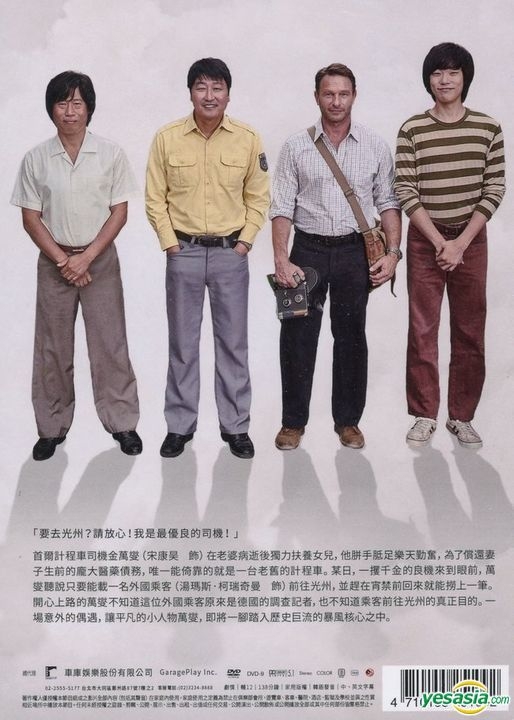

He's four months behind in rent, and everything in his life depresses him, including Eun-sung, and his sympathetic landlord's nosy wife. At first, he's a deadbeat dad who cares more for his taxi cab's broken rear-view mirror than he does about his fellow man.

The same is thankfully not true of Sa-bok. You're not alone." As a result, there's never a moment where Peter's motives are small enough to be sensible.

Reporters go wherever there is news," and "Once this footage airs, the entire world will be watching. Peter's essentially a sandwich board-sized blank slate that Eom and Jang plaster with unbelievable rationalizing like "I'm a reporter. Still, there's nothing more frustrating than watching Peter portrayed as a starch-stiff supporting character whose very presence is supposed to awaken noble aspirations in a lead character. This uncritical deference is almost certainly an ingrained peril of working with the real life Linzpeter shortly before his death. This myopic interest in Sa-bok as a zero-to-hero success story is instantly frustrating since it means that Peter is left largely undeveloped. All we know about him is that he saw that a news story needed reporting, then traveled from Tokyo to Seoul to Gwangju, and finally reported the news because he wanted to shed light on the situation. Screenwriter Yu-na Eom and director Hun Jang (" Rough Cut," "Secret Reunion") both focus primarily on Sa-bok's transformation into a political figurehead. Unfortunately, Sa-bok, a character who is most human when he is most neurotic, eventually becomes completely unsympathetic once he stops being selfish, and starts acting like a man on the road to an unbelievable moral awakening. He learns to become a better, more politically conscious man after he chauffeurs Jürgen-referred to as "Peter" throughout the movie-past military barricades and into Gwangju. Sa-bok's story is, as realized in the film, fairly trite. Song plays Sa-bok Kim, a penny-pinching widower and the oblivious father of pre-teen Eun-sung (Eun-mi Yoo).


 0 kommentar(er)
0 kommentar(er)
